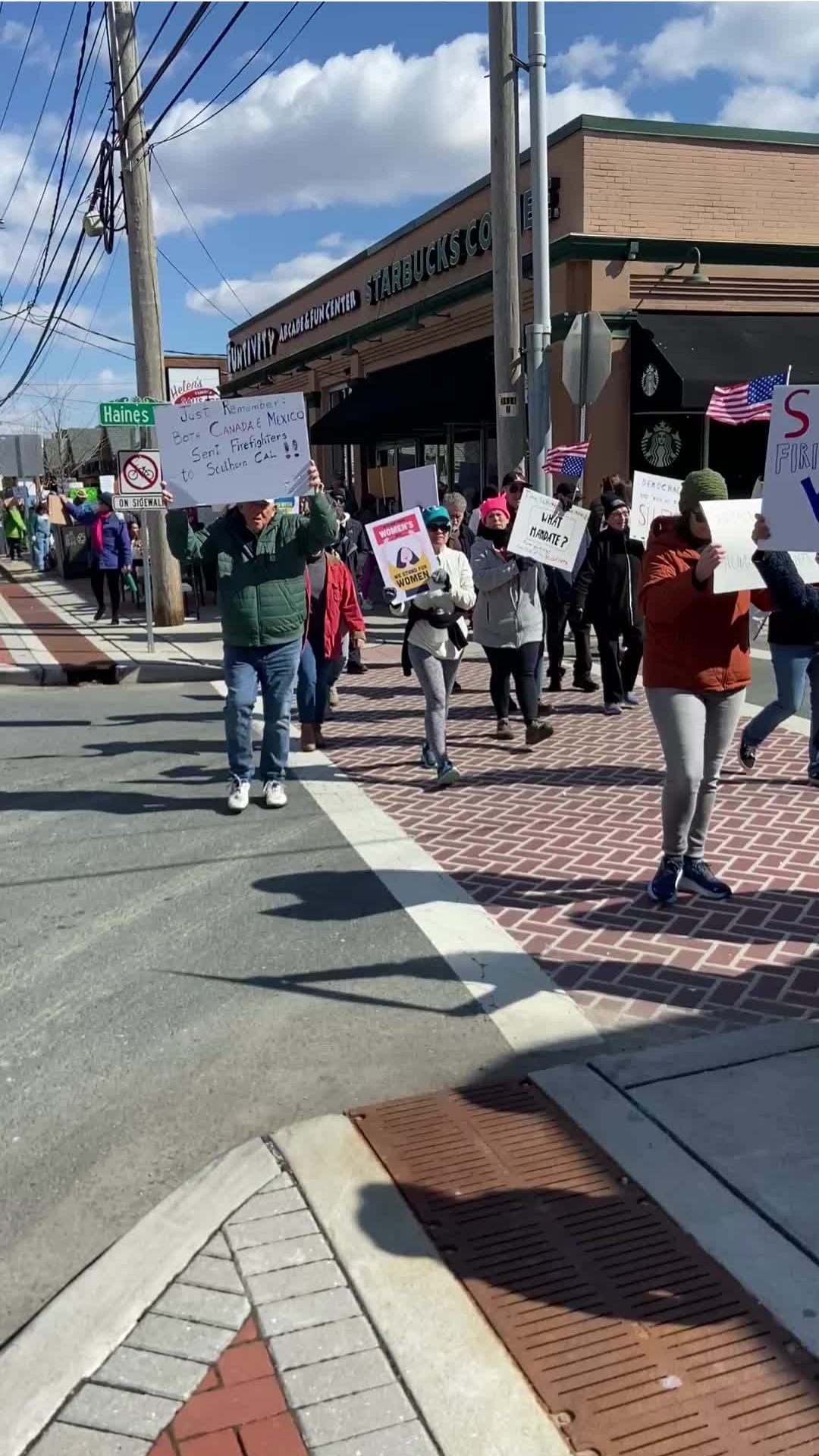Trump cancels food aid, amounting to loss of 900,000 meals for Food Bank of Delaware

- The Food Bank of Delaware was informed Tuesday that President Donald Trump's administration was canceling all 19 truckloads of food poised to provide 900,000 meals to hungry Delawareans.
- The U.S. Department of Agriculture recently cut two programs that gave schools and food banks money to buy food from local farms to the tune of $1 billion.
- The food bank said it will leave no stone unturned in trying to find resources and partners to help fill the large void the federal government's cuts have created.
The Food Bank of Delaware was informed Tuesday afternoon that the federal government is canceling deliveries, amounting to a shortage of 900,000 meals.
The nonprofit, which provides food for food-insecure Delawareans across the state, was told that all 19 truckloads scheduled for delivery over the next few months have been canceled. This follows President Donald Trump's halt of shipments of food aid and funding earlier this month.
The scheduled deliveries from the U.S. Department of Agriculture’s Emergency Food Assistance Program represent over 25% of the food the Food Bank of Delaware was expected to receive for the rest of the year.
Food Bank of Delaware President & CEO Cathy Kanefsky said she received a call Tuesday afternoon informing the nonprofit that all 19 truckloads, which the organization expected would carry a total of 750,000 pounds of food, would not be arriving.
“We have to prepare for the worst-case scenario, unfortunately,” Kanefsky told Delaware Online/The News Journal. “We are not being pulled into the conversation about what is going to happen or why.”
The agricultural department recently cut two programs that gave schools and food banks money to buy food from local farms to the tune of $1 billion, which has thrown nonprofits into chaos as officials grapple with how they’ll continue to fund these vital services.
“Millions of dollars worth of deliveries of vital food aid have been halted to food banks,” Delaware Congresswoman Sarah McBride said on the U.S. House of Representatives floor on Tuesday. “Food banks, who are already stretched thin, are now being asked to do even more with even less. The loss of federal support jeopardizes their ability to serve effectively, placing additional strain on state and local resources."
McBride said the cuts amount to a $2 million funding loss for Delaware.
Hunger in Delaware
One in eight people struggle with food insecurity in Delaware. The situation is even more dire for the First State’s children: One in six kids face hunger.
The Food Bank of Delaware was founded in 1981, forming partnerships with farmers, manufacturers, brokers, wholesalers, and retailers to redistribute food to the hungry.
The nonprofit also provides food through home delivery and mobile and food pantries in Newark and Milford. It provides workforce training, financial coaching, nutrition education and benefits outreach, as well.
But even before the announced cuts to food aid in the United States, food banks were already stretched thin.
“The sad truth is we were already kind of pinched,” Kanefsky said. “People who are coming to the food bank now are different than they were four to five years ago because food prices are up for all of us.”
More people are struggling with food insecurity because of rising food prices, forcing some people to take on several jobs to cover expenses. Making food prices more precarious is the fact that Delaware’s farmers are also owed about $10 million from the federal government, McBride pointed out.
The Democrat argued last month the administration illegally froze funding from the Infrastructure Investment and Jobs Act and the Inflation Reduction Act, which was poised to help farmers improve their infrastructure and lower energy bills.
Food Bank responds
Food banks are in uncharted territory right now, Kanefsky said.
The Food Bank of Delaware has had a longstanding partnership with the federal agriculture department, she said, but even that has not staved off the cuts.
In turn, the nonprofit is leaning on its advocates like McBride and other federal delegates to get answers and work toward a solution, but Kanefsky said the food bank will leave no stone unturned.
Whether it’s a neighborhood food drive or someone looking to donate a large sum of money, the nonprofit leader said all potential support will be tapped.
If you want to help in the food bank’s efforts, visit the website to learn more about how you can assist.
“Everything is on the table and that’s how we’re approaching it,” she said. “Previous administrations in both parties invested in programs to connect farmers with food banks – this is not a partisan issue. We are really trying to drive that home as well. We are here for everyone. We serve everyone with respect.”
Got a tip? Contact Amanda Fries at afries@delawareonline.com, or by calling or texting 302-598-5507.